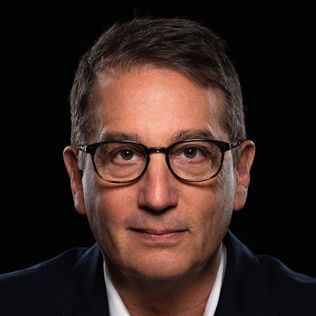Telling the Truth: Do Your Patients Trust You as a Dentist?
Jul 17, 2024Do you always tell the truth? Well, if you don't, you're not alone. Research has shown that the average person lies twice a day. That's the average person—some people lie more, some less. That's close to a thousand lies in a year. So, with all this lying going on, how's the patient going to understand what's best for them and what's not?
Why do people lie? Most of it comes down to fear or a desire to manipulate, which also stems from fear. We lie because we don't want people to see who we really are. We don't want to tell them a truth they may not want to hear because it might hurt them. Or, often in sales, we'll tell them something that will manipulate them to do what we want. Maybe if we tell them the truth, they will say no to treatment, which leads to rejection for us, bringing us back to our fear-based mentality. More than anything else, nobody likes to be rejected and told no.
So why is this important in medicine and dentistry? Because most doctors and healthcare providers don't always tell patients the whole truth. They may not lie, but they may hold back some information. Is that the same thing as lying? Well, it can be if that information is important for the patient to make a decision that's in their best interest.
For example, if a patient comes in and says they want a tooth extracted and an implant because they think that's what they need, but maybe there's another treatment that can save the tooth. It might not be something you're comfortable doing, while the implant is more expedient. You might move them towards the implant. I try not to do that with my patients.
So how do I manage giving patients difficult information? I share the information, not as their equal. No, they're not equal because they don't know as much as I do about dentistry. But I try to bring their education level up to a point where they understand their options. Once they understand their options—the pros, the cons, the costs, the risks, the benefits—they can make a decision in their own best interest.
What I like to call "driving the bus of their own care." By giving them that autonomy, knowledge, and ability to make decisions in their best interest, they can make the best decision for themselves. And I don't have to lie.
I had a difficult conversation last night on the telephone with an ex-resident of mine. They saw one of my patients, and it didn't go very well. The patient came to see me for a second opinion and said they weren't going back to that doctor. I asked why, and the patient gave three or four reasons. I was hesitant to call the doctor and talk about it, so I didn't. We were on the phone discussing other patients, and then the name of this patient came up. The doctor asked if the patient was coming back to see them. I said, "Well, I'm not really sure." I was sure. I told a white lie because I didn't want to offend the doctor, who was my ex-resident from 20 years ago, now a mature, competent practitioner.
The doctor insisted, "Send the patient back, and we'll move along." I decided to tell the truth. I said, "I'm going to share something with you. Do you mind if I tell you the truth?" They said no. I explained, "The patient is not coming back to see you. You did this, this, and this." The doctor replied, "I'm close to 50 years old now. I'm no longer your resident. You're not my father. I know what I'm doing, and I don't do it the same way you do."
I could have let it go because the patient was now in my practice. But I decided to tell the truth to help this relatively young doctor. I said, "I know you're no longer a resident, but because you did this, this, and this, the patient is not coming back to your office. You didn't spend the necessary time with them, and they didn't trust you. They thought you were acting in your own benefit. I realize you may not have been, but that's not what the patient felt."
We had a 40-minute conversation, going back and forth. At the end, the doctor thanked me for explaining and suggested we have dinner. They appreciated and respected me for always telling the truth.
My partner, Dr. Ma, when he first started in practice with me, didn't always want to tell patients the truth, fearing it might offend them or other doctors. I told him, and I tell everyone in my life today, "You should always tell the truth, but deliver it as kindly as possible. Try not to hurt anyone's feelings, but it's important to tell the truth. By doing that, you may not always be liked, but you'll be respected. If someone respects you and comes to you for their care, they trust you. By telling the truth to patients in a kind way, you help them and remove barriers to care. Patients dislike ambiguity, which can be extremely stressful. It's always better to know the truth and where you stand."
So that's my rant today on telling the truth and why it's important not to lie, especially to your patients. Have a great day, everybody. Tell the truth and be the gift.



